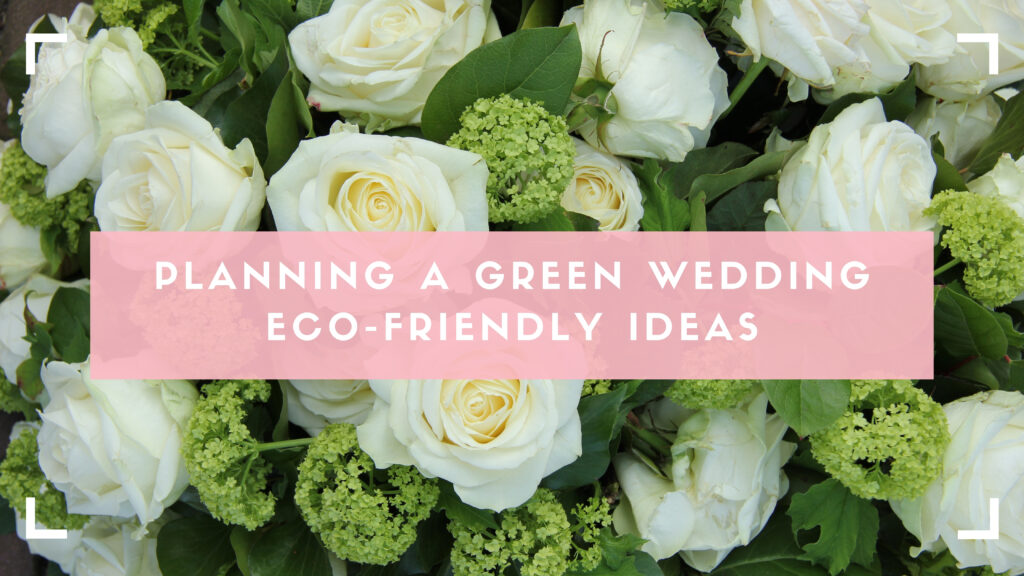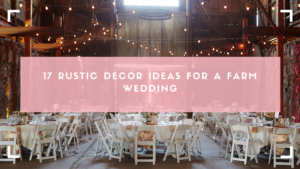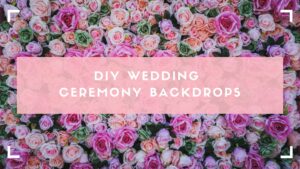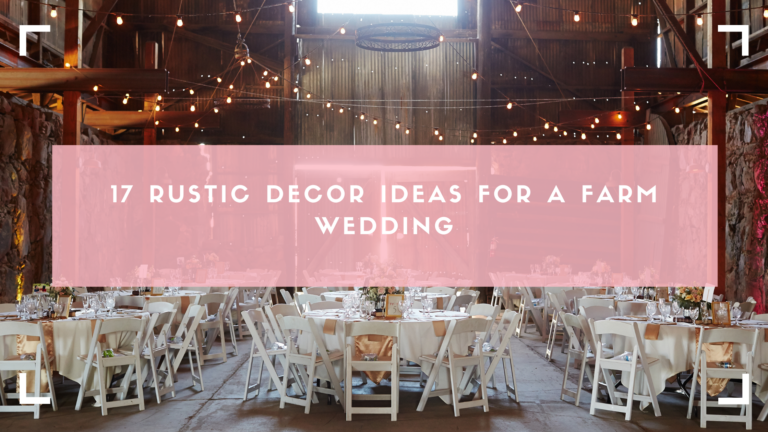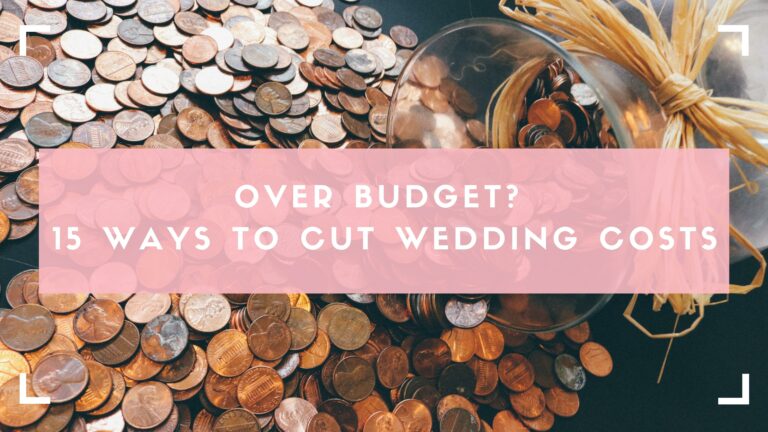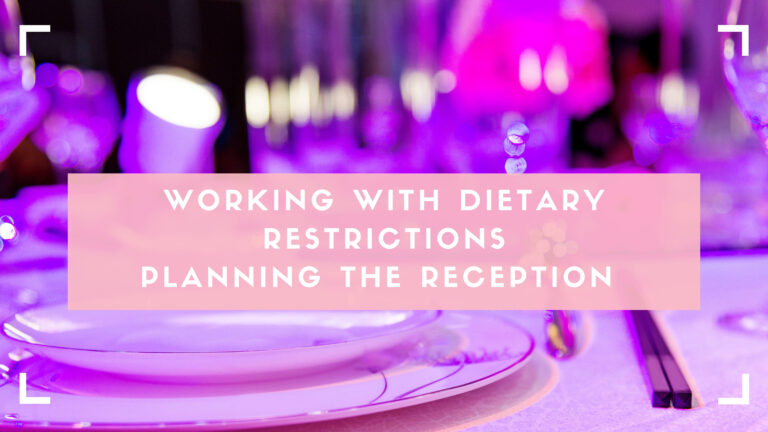It’s the morning after a wedding. Decorations have disintegrated, confetti is littering the lawns, and the guests have left for the airport to fly back to their places of origin. This doesn’t exactly screen green wedding or sustainable.
The average wedding can produce as much as 400 pounds of trash and more than 60 tons of CO2 emissions with guests jetting in from around the country, according to the Green Bride Guide.
The waste and carbon footprint increase may seem negligible for one wedding. But, what about the 2.5 million other weddings that are hosted each year in the U.S.? What should be a new beginning for the couple may end up contributing to the destruction of the natural world.
Fortunately, many couples are now opting for green weddings, where decorations, venues, and travel considerations are all geared toward being low on carbon emissions and leaving a smaller environmental impact.
Why destroy the planet for a day-long “party” when a couple’s first “I do” can be to the benefit of the world around them?
With an eco-friendly wedding, going green is now a great way to start married life. Wedding planners are all jumping on board, too.
8 Ideas to Make Your Client’s Wedding Eco-Friendly
It’s estimated that at least 70% of couples want part of their wedding to be green. Whether this is to choose the scattering of plain-colored rice and leaves instead of confetti or polystyrene, couples are opting for eco-friendly weddings.
Clever wedding planners are capitalizing on this surge in going green, and you should too.
1. Sustainable Wedding Venues
Couples have the power to choose an eco-friendly wedding venue. This may be to use a venue that prioritizes sustainability or energy efficiency, offers shuttle services to limit travel pollution, and is centrally located to reduce travel time and emissions.
Another way in which a venue can be more eco-friendly is to use recycled materials in the production of decorations, linens, silverware, and plates. This will limit waste.
Opt for venues where you can capitalize on the natural beauty, limiting the need to artificially beautify the reception area. Other great options include parks, retreats, private estates, golf club estates, unique B&Bs, and ranches.
2. Small, Local Green Weddings
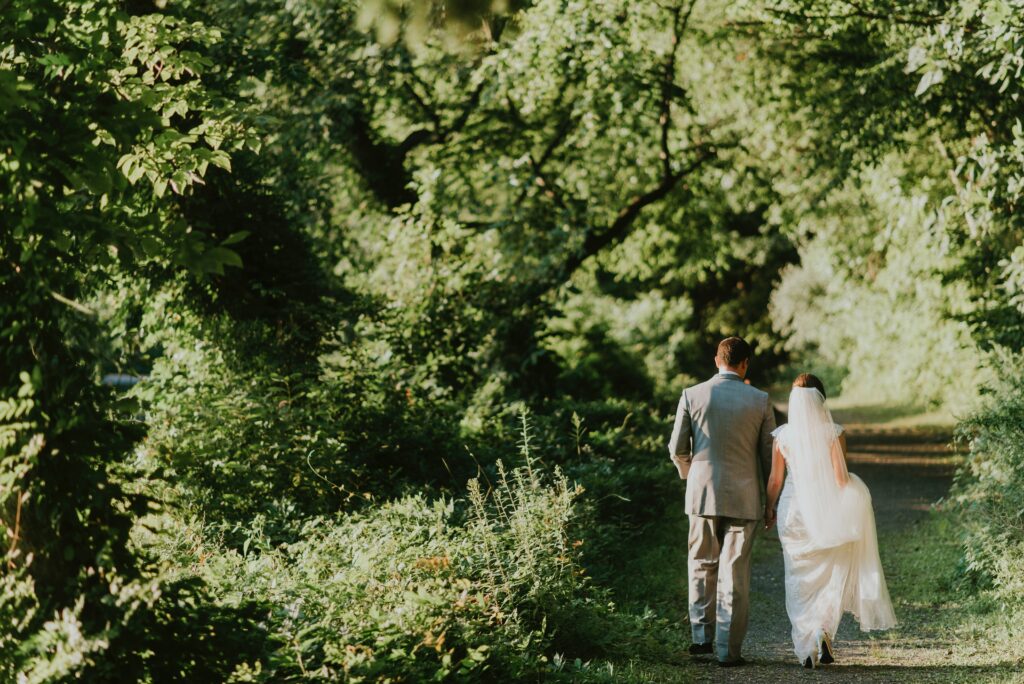
The intimate wedding is always a winner, and opulence doesn’t equate to eternal love. So encourage the brides and grooms to go for smaller weddings with greater attention to details like naturally sourced raw materials, group travel arrangements, and structuring their guest list more responsibly.
3. Vegan or Vegetarian Menus
Greening up a wedding may also include using an earth-friendly menu. Offering vegan options can be a delicious alternative to a four-course meal. Try smaller portions of unique starters and a veg forward main course created to suit your wedding theme.
Using alternative serving styles can limit waste as well, as guests only select food they want to eat. Having the meal and appetizers served on real dishware can also help reduce waste and breakage.
4. Reduce, Reuse, and Recycle Decorations
Weddings generate a lot of trash, and the decorations form a huge part of this. Do away with single-use decorating items, plastics, water bottles, straws, and the like.
Instead, take the “something old, something borrowed” wedding tradition even further. Rent wedding decorations (and even the wedding dress and tux) so they can be reused time and again.
Another great option is making unique decorations for your special day from materials you have at home. Or buy biodegradable materials.
Ideas for handmade decor items include candles, boutonnieres, wedding signs written on mirrors, seat covers, floral bouquets, photo booth backdrops, and numbered wine bottles to allocate tables.
Even wedding invitations offer a much more personal and meaningful touch when homemade. Hand-made invitations that will be treasured for years to come.
A glossy, plastic-coated wedding invitation from a chemical-laden printing press will not achieve the same personal connection. Plus, it will clog up drains and end up floating as trash in the ocean.
Reuse by borrowing elements that can be used decoratively from family and friends. Mirrors, large drapes, table cloths, and even candle stands can all be found in homes of the people near and dear to the bride and groom. So include these in the decor plans. This not only saves money but also reduces waste.
5. Green Bride and Bridal Party Accessories
Every part of the wedding, bridal party, and celebration can have an eco-footprint. Be sure to choose wisely.
When it comes to jewelry, choose conflict-free gems. Make sure the stone brokers and jewelers your couple supports are all affiliated with and uphold fair labor practices.
Whether your bride’s wedding dress has 1,000 pearls or exquisite crystals, be sure these are responsibly sourced. Help your couple go green starting with the very basic elements of the wedding.
Bridal gifts are often purchased at great cost, both financially and environmentally. Instead, choose gifts such as vintage jewelry, eco-art, and responsible natural fiber gowns and sleep basket ideas.
Even the napkin rings can be vintage, natural, or fully compostable. From edible plates and recycled cutlery that guests can take with them when they leave. The options for a green wedding are endless.
6. Bridal Bouquet and Wedding Flowers
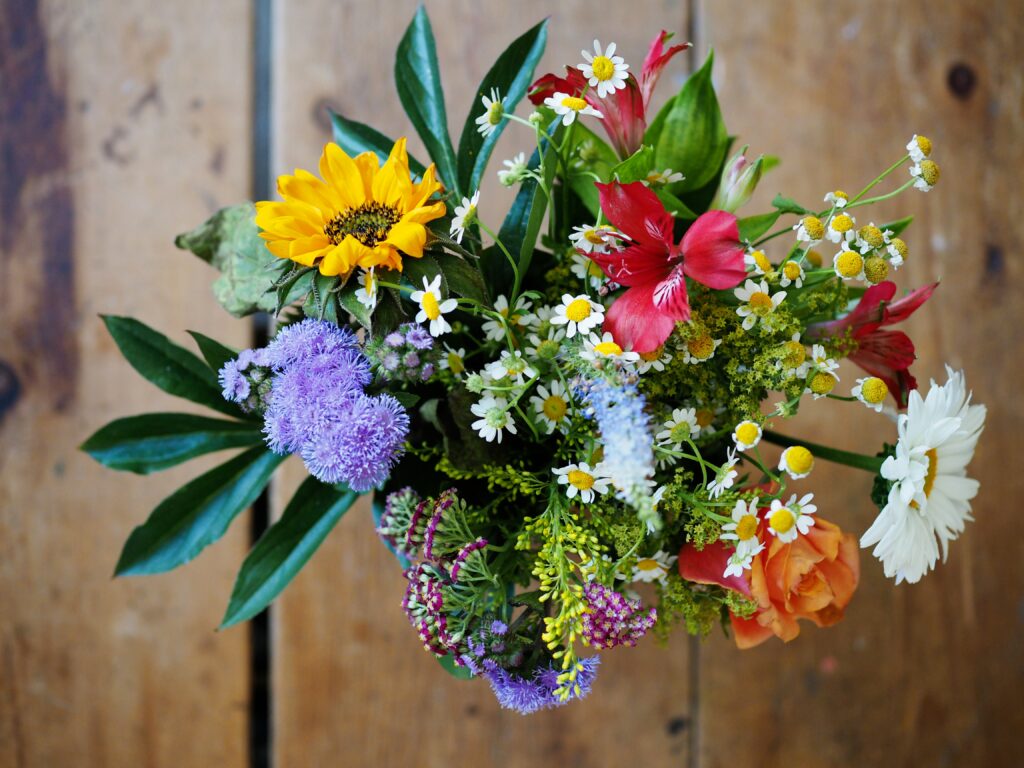
While brides and grooms may like exotic flowers, these come at a cost to the environment as shipping flowers from afar creates CO2 emissions. Instead, opt for locally grown flowers. Work with the florists of the area to source local or native flowers that will make a stunning bridal bouquet and table arrangements.
This helps to support farmers, boost the local economy, and reduce travel requirements.
Potted plants or natural arrangements made with found items such as driftwood and shells are also a great alternative to cut flower arrangements. These are also completely cost-free if sourced locally. Even growing a few succulents in the months leading up to the wedding can reduce the need for large bouquets.
Following the wedding, be prepared with what to do with the remaining floral arrangements. Simply leaving them is wasteful. These could be delivered to retirement homes or they can even be sent to the local hospitals to help brighten up reception areas.
Likewise, leftover wedding food can be donated to the local shelters and soup kitchens. Reuse, recycle, and reduce the impact of the wedding in all ways possible to achieve a truly sustainable wedding.
7. A Green Wedding Registry
As you know, most couples go a bit overboard when adding items to their wedding registry. The “oohs” and “I want thats” are plentiful.
However, many of these products negatively impact the environment (think of the production, shipping, and packaging) that’s exacerbated by items becoming white elephants when they aren’t used.
To make the registry eco-friendly, let guests give the couple intangibles. This mean gift cards, donations to charities that are close to their hearts, or honeymoon experiences. Setting up a honeyfund makes it easy for friends and family of the bride and groom to gift-give.
8. Green up the Honeymoon
We all know, that following all the excitement of the wedding day, the honeymoon is perhaps the second most anticipated part of the wedding experience. So, instead of planning for the bride and groom to jet off to some exotic, foreign locale, choose a local destination. This will still mean great experiences and quality time for the bride and groom.
Help your clients choose a closer-to-home honeymoon. But don’t worry, it will still have adventures but will support local venues, spas, and retreats. Consider going on eco-venture outings in nature or doing something good for the community like building units for Habitat for Humanity.
Green Weddings: Let’s All Work to Make Wedding Industry Better
Planning a green wedding may be an unusual challenge to a wedding planner. It requires as much attention to detail as a big-budget wedding. Or, one where you need to work on a tight budget. Choose to use sustainable venues and host the wedding locally to reduce travel costs and emissions.
Reduce, reuse, and recycle for the trimmings and decorations of the wedding. Even consider going green with the menu by offering healthy and responsibly sourced vegan alternatives served in buffet format to limit food waste.


